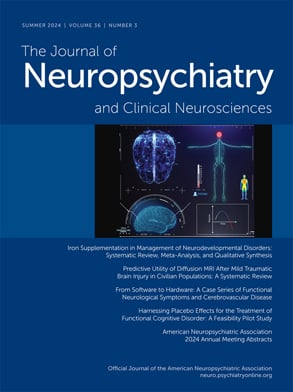SIR: Anti-inflammatory drugs are currently being considered for treatment of Alzheimer's disease; it is believed that although they may not cure the disease they could slow the progression or delay the onset of this devastating disorder.
1 The inflammatory enzyme 5-lipoxygenase (5-LOX), which is implicated in the pathobiology of asthma,
2 may also participate in the pathology of Alzheimer's disease.
3 It has been proposed that an overexpressed 5-LOX gene could significantly increase the brain's vulnerability to neurodegeneration.
4 The expression of this gene is diminished in individuals with a mutation in the core promoter of the gene 5-LOX (on chromosome 10q11.2); if such an individual suffers from asthma, the asthma will not respond well to the treatment with a 5-LOX-specific inhibitor.
2 Hence, we hypothesized
5 that 5-LOX promoter polymorphism could affect the onset of Alzheimer's disease and/or influence the response of Alzheimer's patients to treatment with anti-inflammatory 5-LOX inhibitors. To test this hypothesis, 5-LOX genotyping should be performed in a population of well-characterized Alzheimer's patients. The feasibility of such a study is demonstrated by results of the pilot study summarized below.
We obtained 34 DNA samples from the National Institute of Mental Health (NIMH) Center for Genetic Studies. These samples were from Alzheimer's patients with a known age of onset of the disease: early onset (before 62 years of age) and late onset (80 years and older); 17 samples were chosen randomly from each onset group. The samples were analyzed for tandem repeats of the Sp1-binding motif GGGCGG by using described techniques;
2 the wild type (+/+) and the mutations (–/+, heterozygous; –/–, homozygous) were assigned as suggested.
2There were 12/17 wild type individuals in the early-onset group and 10/17 wild type individuals in the late onset group (71% and 59%, respectively). The only homozygous mutation (44)
2 was found in the late-onset group. The sample size in this pilot study was too small to derive any statistical significance. However, the trend to a lower frequency of wild type 5-LOX in late-onset Alzheimer's is in line with the previously published hypothesis
5 proposing that the onset of Alzheimer's disease will be delayed in subjects with 5-LOX promoter mutations. Further studies are needed to test this hypothesis. This pilot study has established that about 35% of Alzheimer's patients have a mutation in the 5-LOX promoter. Prompted by this observation and by previously identified pharmacogenetic association between 5-LOX promoter genotype and the response to anti-inflammatory treatment of asthma,
2 we now propose that 5-LOX polymorphism should be taken into consideration when the efficacy of anti-inflammatory drugs is tested for possible therapeutic benefits to Alzheimer's patients.
ACKNOWLEDGMENTS
Data and biomaterials were collected in three projects that participated in the National Institute of Mental Health Alzheimer Disease Genetics Initiative between 1991 and 1998 (Grants U01 MH46281, U01 MH46290, and U01 MH46373). H.M. was supported by the University of Illinois at Chicago Campus Research Board Award, CRB F98.

